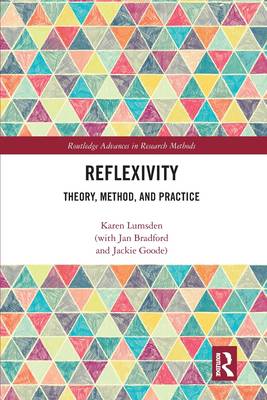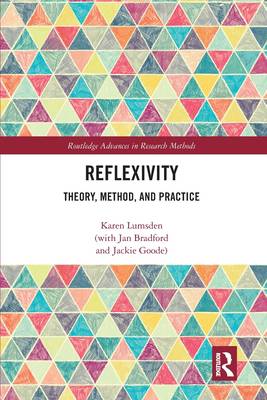
- Retrait gratuit dans votre magasin Club
- 7.000.000 titres dans notre catalogue
- Payer en toute sécurité
- Toujours un magasin près de chez vous
- Retrait gratuit dans votre magasin Club
- 7.000.0000 titres dans notre catalogue
- Payer en toute sécurité
- Toujours un magasin près de chez vous
Description
Reflexivity is valuable in social research because it draws attention to the researcher as part of the world being studied and reminds us that the individuals involved in our research are subjects, not objects. By being reflexive we acknowledge that we cannot be separated from our biographies.
This volume reviews key debates concerning reflexivity in theory, methods, and practice. It mounts a defence of reflexivity against new materialist and post-qualitative critiques and the pressures exerted on scholars from the neoliberal marketized university system which privileges fast academia at the expense of slow, reflective scholarship. While defending reflexivity, this book also those identifies issues which plague mainstream sociological operationalizations of a positivistic form of reflexivity. It argues for the extension of reflexivity into domains otherwise neglected in public accounts, and a shift from reflexivity as an individualized quality of the researcher (used to judge peers and navel-gaze) to a feminist, collaborative, reflexive sensibility which is mindful of the wider contexts shaping the construction of knowledge(s), experience(s), and of the role of research communities.
Providing examples of reflexivity in action from academics at different stages of their careers, Reflexivity will appeal to students and researchers interested in fields such as Sociology, Qualitative Research Methods, Criminology, Ethnography, and Ethics of Research.
Spécifications
Parties prenantes
- Auteur(s) :
- Editeur:
Contenu
- Nombre de pages :
- 202
- Langue:
- Anglais
- Collection :
Caractéristiques
- EAN:
- 9780367582036
- Date de parution :
- 30-06-20
- Format:
- Livre broché
- Format numérique:
- Trade paperback (VS)
- Dimensions :
- 152 mm x 234 mm
- Poids :
- 317 g

Les avis
Nous publions uniquement les avis qui respectent les conditions requises. Consultez nos conditions pour les avis.






